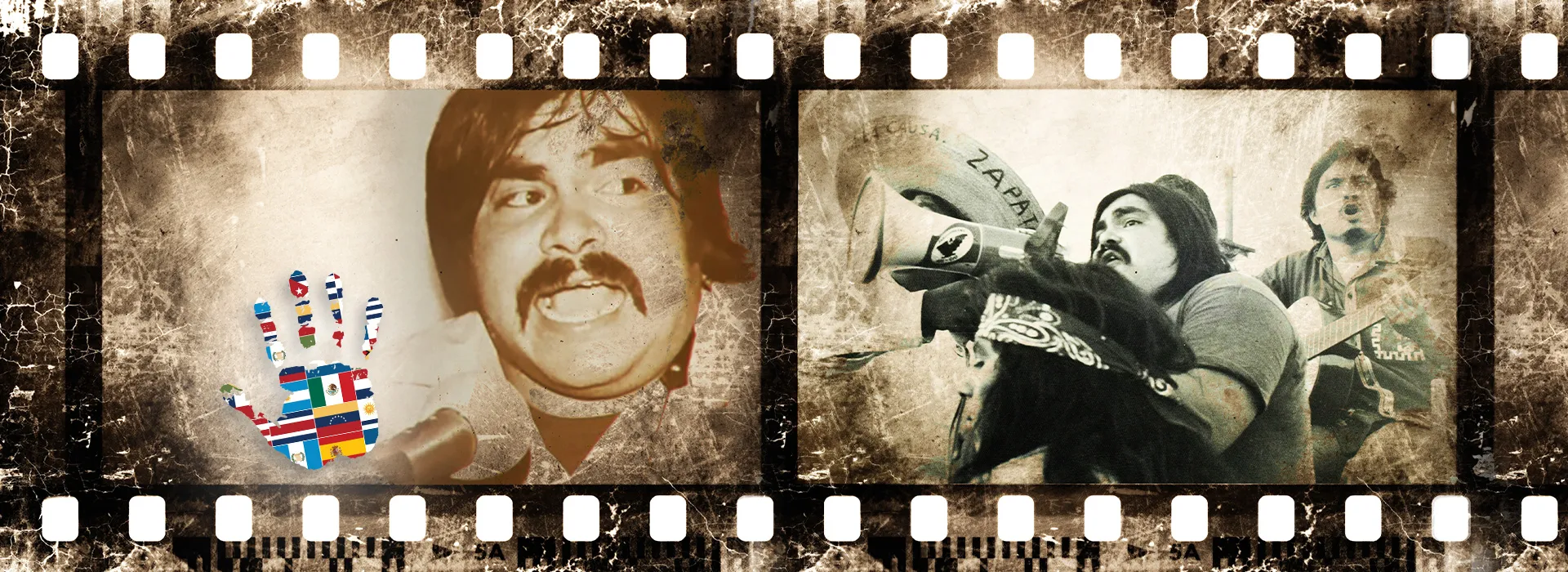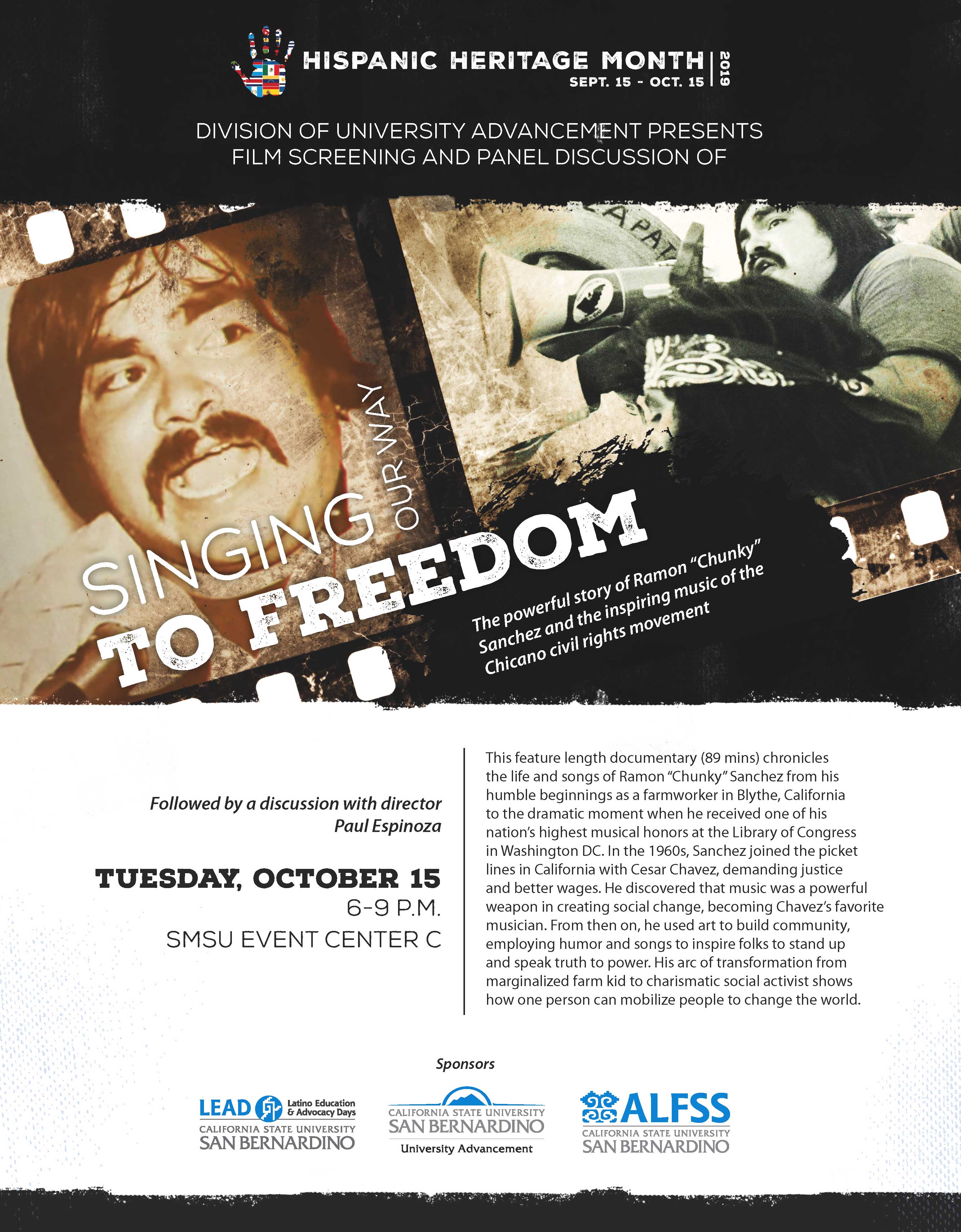Joe Gutierrez Office of Strategic Communication (909) 537-5007 joeg@csusb.edu

A feature-length documentary, “Singing Our Way to Freedom,” on the life of the late Chicano musician and activist, Ramon “Chunky” Sanchez, will be shown at Cal State San Bernardino on Tuesday, Oct. 15, as part of the university’s ongoing celebration of Hispanic Heritage Month.
A reception, with music performed by Son Real, will begin the event at 5:30 p.m. in the Santos Manuel Student Union. The film will be screened beginning at 6 p.m. Following its showing, Enrique Murillo Jr., CSUSB professor of education and founder and executive director of the Latino Education and Advocacy Days project, will interview producer and director Paul Espinosa on the impact of Sanchez’s music and his community activism.
The event is free and open to the public. Parking at CSUSB is $6.
“From the early days of the Chicano civil rights movement alongside Cesar Chavez through today’s immigrants’ rights protests, Chunky has used music to energize our political imagination in the struggle for social justice,” Espinosa Productions’ website states. “Our film examines how Chunky’s inspiring career as a musician is interwoven with the broader history of the Chicano movement, a cultural movement nearly forgotten today. A portrait of one charismatic musician and activist allows us to revisit this pivotal era in American history and to provoke dialogue about the many hurdles that had to be overcome to gain equal rights for Mexican Americans.”
Born in the Riverside County desert town of Blythe on Oct. 31, 1951, the son of farm workers became a musician, songwriter, educator and activist who was awarded the National Endowment for the Arts National Heritage Fellowship Award in 2013, the nation’s highest honor presented to master folk and traditional artists. In between, he attended San Diego State, performed at rallies and marches for the United Farm Workers Union (he was said to be labor leader Cesar Chavez’s favorite musician), helped organize the effort to build San Diego’s iconic Chicano Park, and worked with gang members in San Diego to move on from that lifestyle.
“He was a great musician but he was deeply committed to social justice and committed to the Chicano movement and committed to helping other people reach their potential,” said Mario Aguilar, a longtime friend of Sanchez and fellow musician, in a KPBS radio interview after Sanchez died on Oct. 28, 2016. “He saved a lot of men from going to prison. A lot of men who met him never went back to prison. He was a larger-than-life man.”
Hispanic Heritage Week was established by legislation sponsored by Rep. Edward R. Roybal (D-Los Angeles) and signed into law by President Lyndon Johnson in 1968. The commemorative week was expanded by legislation sponsored by Rep. Esteban Edward Torres (D-Pico Rivera) and implemented by President Ronald Reagan in 1988 to cover a 30-day period (Sept. 15 – Oct. 15). The bill died in committee, but in 1988, Sen. Paul Simon of Illinois re-submitted an amended version of the bill, which was enacted into law on Aug. 17, 1988.
Sept. 15 of every year was chosen as the starting point for the celebration because it is the anniversary of independence of five Latin American countries: Costa Rica, El Salvador, Guatemala, Honduras and Nicaragua, who all declared independence in 1821. In addition, Mexico, Chile and Belize celebrate their independence days on Sept. 16, Sept. 18 and Sept. 21, respectively.
For more information, visit the Hispanic Heritage Month website or the CSUSB HSI Events webpage.
